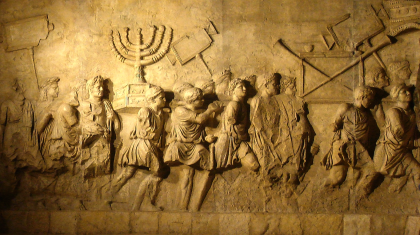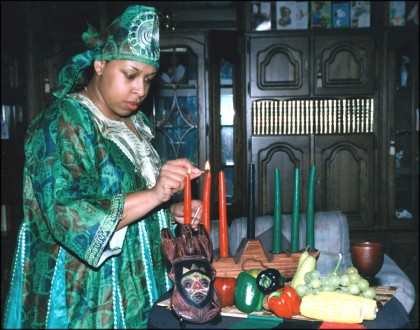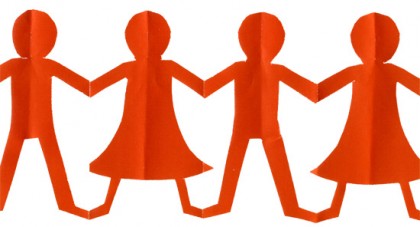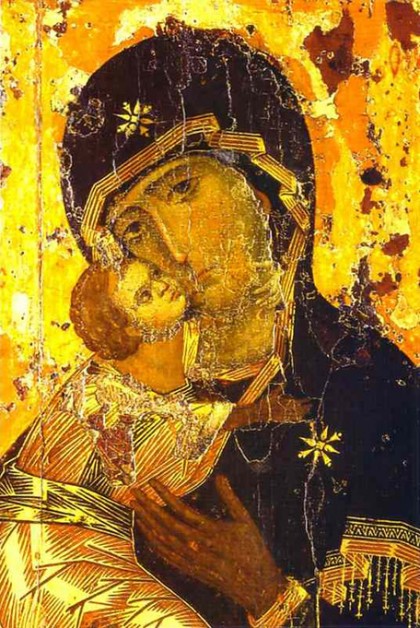Happy Holydays!
Devra Torres | Dec 22, 2014
The “winter holiday that dare not speak its name” is upon us. Quick, what are we allowed to say about it?
“Merry Christmas”? No, too exclusive; too religious. “Happy Hanukkah”? “Happy Kwanzaa”? These haven’t caught on as generic greetings, though they’re correct enough. “Happy Holidays”? Yes, that’s fine (though it’s not clear why, since it’s transparently derived from “holy days,” which ought to arouse almost as much suspicion as "Christ" + "Mass").

Last year I wrote about not getting so distracted fighting the War against the War against Christmas that you forget all about rejoicing in the birthday Boy. This year there’s a meme going around that serves as another good reminder: Honoring the Reason for the Season is not just about boycotting Target.

So, Point One: keep your own head on straight, your own soul in order. Don’t rush out to fight the culture wars afflicted by tunnel vision and an eye full of logs.
But then there’s Point Two: our relations with other persons.
Here’s where we get into trouble. When we treat other persons as instantiations of a type, generic members of a tribe, we end up twisting ourselves in knots. We invent brand new ways to be offensive in our quest to avoid offense. We sidestep subjects and expressions that were only a problem in our own minds. We assume we know other people’s grievances better than they do, instead of considering their own subjectivity. And we strip our laws and schools and public squares of a lot of their substance along the way.

For example, you might want to honor Jews by treating Hanukkah as a mini-Christmas. The trouble is, as Michelle Arnold of Catholic Answers writes here:
Hanukkah cards, along with all the other quasi-Christmas Hanukkah trappings, are a source of debate among Jews. Some Jews enjoy sending out Hanukkah cards, wrapping gifts in blue and white paper, stringing up lights in the shape of the Star of David, and baking dreidel-shaped cookies. Other Jews recoil at this, considering all of this to be a Christianization of a minor Jewish holiday.
And then there’s this:
… every year at Hanukkah there is always some Christian who goes searching for an image of a menorah with which to greet his Jewish circle. He usually finds an ancient relief panel of people carrying a menorah. It looks old, it looks dignified—perfect! He uses it to create an electronic greeting card or he copies it into his Facebook page with a few lovely words wishing everyone a happy Hanukkah.

The trouble is:
…What is depicted in that ancient relief panel on the Arch of Titus is the looting of the Temple by the Romans. The scene of pagans carrying away the sacred Temple Menorah is completely inappropriate for a holiday that celebrates the victory of the Maccabees over the pagans and the rededication of the Temple from false worship to the worship of the one true God of Israel.
And what is Hanukkah, anyway? Hardly the enemy of the Reason for the Season. A menorah is not a mere capitulation to political correctness: it points to the feast of the Dedication of the Temple, celebrated by Jesus Himself, hardly something foreign to authentic worship. As Michelle points out:
If Christians learn nothing else about Hanukkah, they should learn that it is a holiday that commemorates a rejection of false worship and an affirmation of worship of the one true God.
Kwanzaa is a little different, being an exceedingly recent invention. It was first celebrated in 1966, designed to raise consciousness about African nationalism. It was originally conceived of as an “oppositional alternative” to Christmas, but later its creator backed down from that.

But just as it would be silly to treat all Jews as a monolithic lump, it would be silly to treat all African Americans, or even the entire continent of Africa, the same way. Africa embraces an enormous number of cultural traditions which I, like most Americans, know absolutely nothing about.
So please, let’s not get it into our heads that Christmas somehow isn’t for Black people. And if they do celebrate Kwanzaa, don’t be too anxious to pigeonhole them for that, either.
In short, treat persons as persons, not exemplars of a type.

And—this can be trickier—don’t treat your own faith like a tool in the battle with secularism or atheism or commercialism.
It’s easy in these contentious days to imagine that practicing your faith begins and ends with approving of true propositions and disapproving of false ones. From there, it’s a short step to approving of yourself and disapproving of the vast majority of people you’ll ever run into--and imagining that this makes you devout.
So where does the remedy begin? For one thing, we could all work on being less fixated on the nuances of the greetings and more attentive to the birthday Boy.

